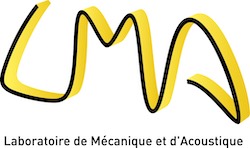In terms of computational methods, solving three-dimensional time-harmonic wave problems is known to be challenging, especially in the high frequency regime. The brute-force application of the finite element method in this case leads to the solution of very large, complex and possibly indefinite linear systems. Direct sparse solvers do not scale well for such problems, and Krylov subspace iterative solvers can exhibit slow convergence, or even diverge. Domain decomposition methods provide an alternative, iterating between subproblems of smaller sizes, amenable to sparse direct solvers. In this talk I will present two recent developments in the design and implementation of domain decomposition methods for such high-frequency wave problems, which are well suited for high-performance large scale parallel computations. First, I will introduce a non-overlapping Schwarz domain decomposition method that exhibits quasi-optimal convergence properties, i.e., with a convergence that is optimal for the evanescent modes and significantly improved compared to competing approaches for the remaining modes [1, 2]. These improved properties result from a combination of an appropriate choice of transmission conditions and a suitable approximation of the Dirichlet-to-Neumann operator. Even with optimal transmission conditions, however, the number of iterations of non-overlapping Schwarz methods increases with the number of subdomains. To address this issue, I will then present a sweeping preconditionner that approximates the inverse of the iteration operator for a layered partitioning of the domain [3]. These algorithms will by demonstrated using the open source code GetDDM, which is freely available online and can been used to solve problems with several billion unknowns on massively parallel computers [4].
References :
[1] Y. Boubendir, X. Antoine and C. Geuzaine, A Quasi-Optimal Non-Overlapping Domain Decomposition Algorithm for the Helmholtz Equation. Journal of Computational Physics 231 (2), pp. 262-280, 2012.
[2] M. El Bouajaji, B. Thierry, X. Antoine and C. Geuzaine. A quasi-optimal domain decomposition algorithm for the time-harmonic Maxwell’s equations. Journal of Computational Physics 294, pp. 38-57, 2015.
[3] A. Vion and C. Geuzaine. Double sweep preconditioner for optimized Schwarz methods applied to the Helmholtz problem. Journal of Computational Physics 266, 171-190, 2014.
[4] B. Thierry, A.Vion, S. Tournier, M. El Bouajaji, D. Colignon, N. Marsic, X. Antoine, C. Geuzaine. GetDDM : an Open Framework for Testing Optimized Schwarz Methods for Time-Harmonic Wave Problems. Computer Physics Communications, 2016 (in press).


